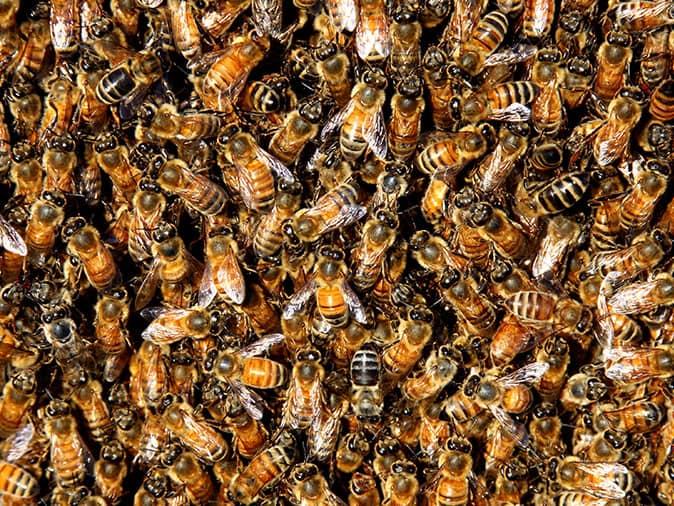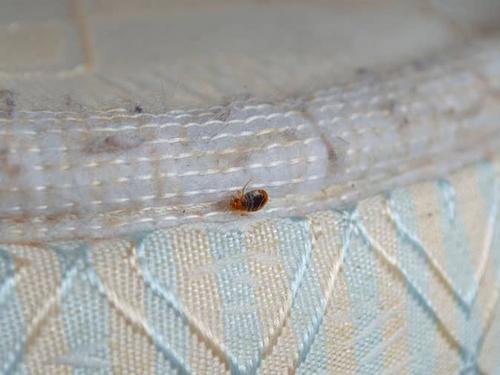What Do Honey Bees Look Like?
Honey bees are social insects that live in colonies containing thousands of bees. Highly organized, honey bees are extremely beneficial insects to the environment and are responsible for pollinating a large variety of fruit and vegetable crops as well as flowers.
These stinging insects range in color from orangish brown to black in color and have bands of color on the lower portions of their bodies. Unlike bumble bees that are fuzzy, honey bees in Colorado have short hairs. While worker honey bees and queen honey bees have stingers, drones (male honey bees that mate with the queen) do not have stingers. Also it's worth noting that worker honey bees have barbs on the end of their stingers; queens do not.

When are honey bees most active?
Are Honey Bees Dangerous?
They can be. Honey bees are not particularly aggressive and generally only sting if their nest is threatened, they are being handled roughly, or they’re accidently stepped on.
They should be considered dangerous because a bee sting from one of these pests can cause a severe allergic reaction. In some cases, medical attention is required.
Honey bees are also a threat to homes and buildings. After they’ve established residency inside the dwelling you may start to see structural damage, dry rot and mold issues. In some cases, it’s not the bees themselves that cause the damage but other insects their nests attract.
Why Do I Have a Honey Bee Problem?
It’s possible your garden is attracting these stinging insects. In order to produce honey, these bees need pollen and nectar they collect from flowers. Once on your property they may establish nests in and around your structure.
How Do You Get Rid of Honey Bees?
If you have honey bees on your property and they are not bothering you, you may consider leaving them alone. However, if they’ve invaded your house or have become a nuisance around your business, you should seek professional help.
At EnviroPest, we specialize in honey bee removal and offer this service in Denver, Loveland and throughout Northern Colorado. Our pest control experts will safely and effectively remove honey bees and their nests from your structure and take care of the mess they leave behind.
Is the Treatment for Honey Bees Safe?
Any attempts at removing honey bees on your own are highly discouraged. As mentioned above, these bees can be dangerous to your health. Our honey bee removal experts have the correct equipment, knowledge and experience to safely get rid of honey bees.
How Soon Can You Get Here?
As with other pest problems, we take honey bee issues very seriously and are committed to helping as soon as possible. In most cases, we can respond the same or very next day.
How Much Does Honey Bee Removal Cost?
The cost of service depends on the level of infestation and other time consuming factors. Contact us to learn more about the service and pricing.
How Can I Prevent a Honey Bee Problem in the Future?
Reducing the amount of flowering landscaping around your home or business may help deter honey bees. You should also keep outdoor eating areas clean. Trash, soda cans and even grills may attract these pests.

Testimonials
GETTING STARTED IS AS EASY AS 1-2-3
REQUEST QUOTE & SCHEDULE



